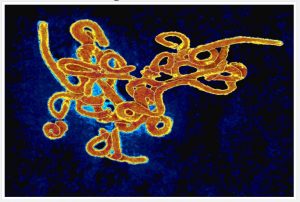A patient at Mount Sinai Hospital in New York City is reportedly being tested for a potential case of Ebola. The man, who arrived in the United States following a trip to a West African country, ground zero for the worst outbreak of Ebola in history, is experiencing a high fever and gastrointestinal distress, symptoms not necessarily specific to Ebola. Officials are cautiously optimistic the illness will not be found to be Ebola.
“‘All necessary steps are being taken to ensure the safety of all patients, visitors and staff. We will continue to work closely with federal, state and city health officials to address and monitor this case, keep the community informed and provide the best quality care to all of our patients,'” the hospital wrote in a statement.
Mt. Sinai is following what the Center for Disease Control recommended last week when they sent a Health Alert to doctors and hospitals.
The New York City Department of Health said, ‘After consultation with CDC and Mount Sinai, the Health Department has concluded that the patient is unlikely to have Ebola. Specimens are being tested for common causes of illness and to definitively exclude Ebola.’
Testing for Ebola is done at the CDC. According to a CDC spokesperson testing for Ebola takes 1-2 days after they receive the samples. The primary testing is PCR. This is performed on blood that has been treated to kill and [sic] live virus. So far CDC has tested samples from around 6 people who had symptoms consistent with Ebola and a travel history to the affected region.”
Meanwhile, the man is reportedly being held in strict isolation while the hospital awaits the test results. Let’s hope they do indeed prove negative for Ebola.
While I’m no expert on Ebola, it’s nonetheless worth listing the known symptoms of the disease in order to arm ourselves with facts rather than hyperbole. As reported by the World Health Organization, symptoms are:
- Sudden onset of fever
- Intense weakness
- Muscle pain
- Headache and sore throat
- Followed by vomiting, diarrhea, rash, impaired kidney and liver function, and in some cases, both internal and external bleeding.
- Laboratory findings include low white blood cell and platelet counts, and elevated liver enzymes.
- The incubation period, or the time interval from infection to onset of symptoms, is from 2 to 21 days. The patients become contagious once they begin to show symptoms. They are not contagious during the incubation period.
- Ebola virus disease infections can only be confirmed through laboratory testing.











Recent Comments